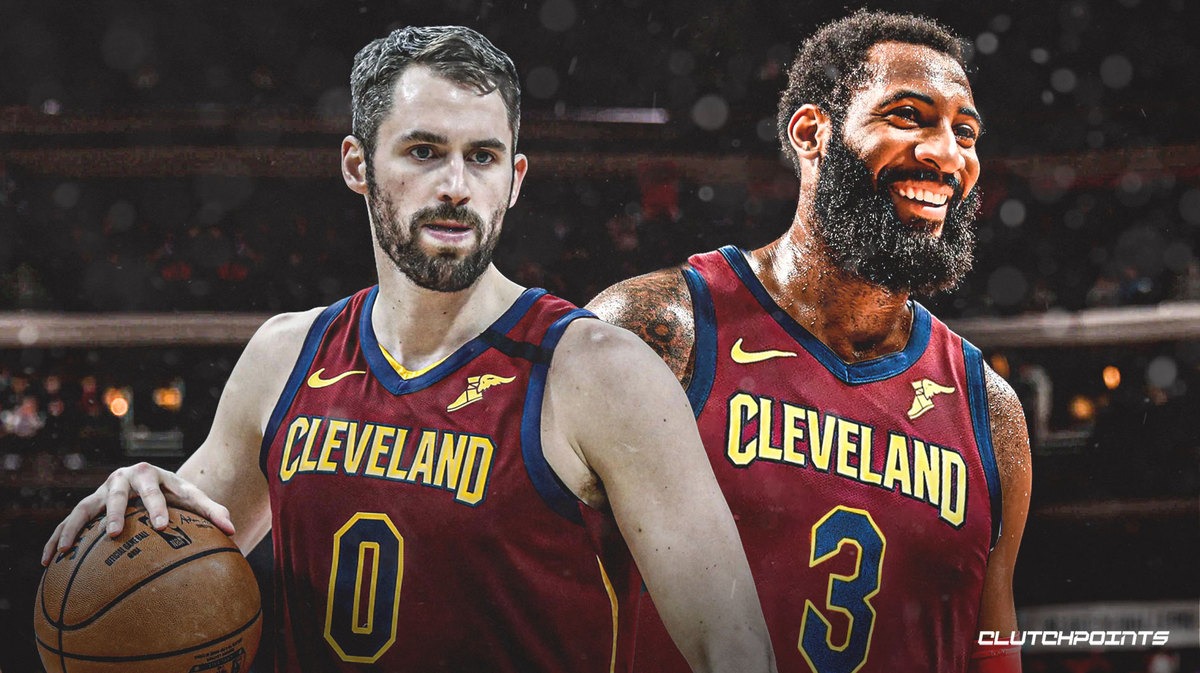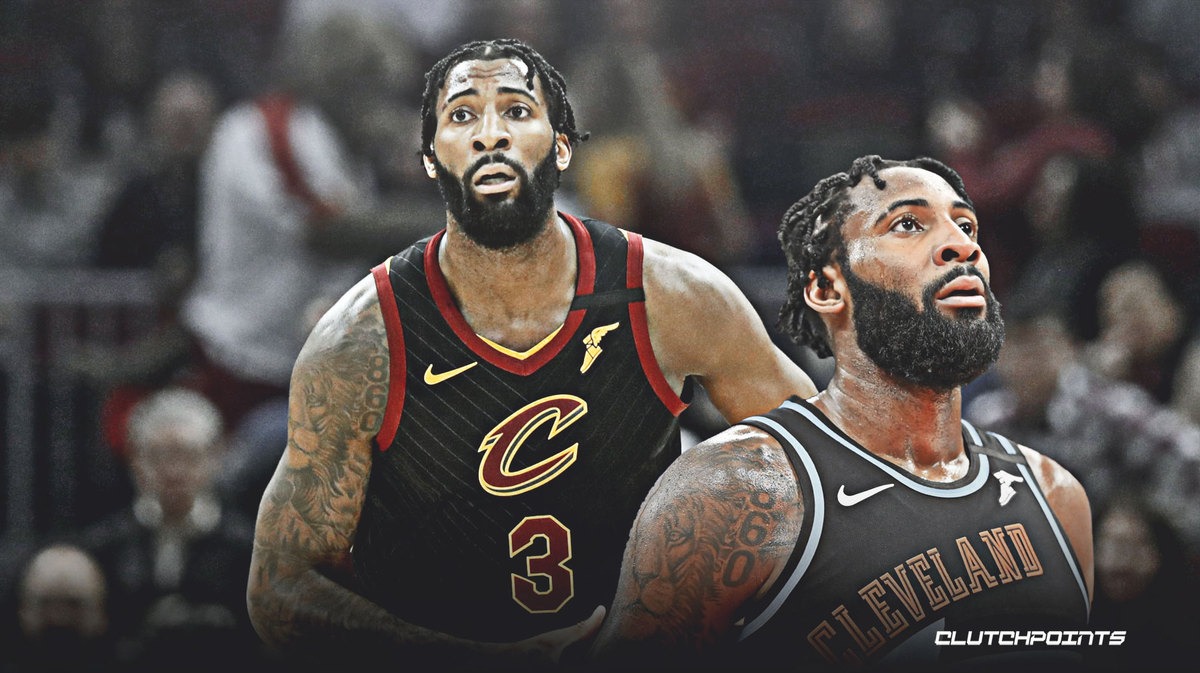On Tuesday, months ahead of his October 17th deadline, Cleveland Cavaliers center Andre Drummond announced he would be picking up his player option for the final year of his contract, sticking around in Cleveland for the 2020-2021 season. It was far from a surprise though, and it presents the first bit of predictable news the Cavs have made in quite a while — really ever since LeBron James left in free agency back in 2018.
The Patrick McCaw situation. Hiring John Belein. Drafting Darius Garland. Releasing (instead of trading) J.R. Smith. Firing John Belein. Trading for Andre Drummond. The price Cleveland gave up for Drummond. These are all semi-major moves that the Cavs have made recently that range from somewhat surprising to completely out of left field.
Finally, something happened that was to be expected. It always made sense for Drummond to opt-in, unless he was so miserable playing in Detroit or Cleveland that he just wanted to get out of town as soon as possible.
Based on his comments and attitude since joining the Cavs, that is far from the case. Based on his answer to a question asked on ESPN’s LeBatard & Friends STUpodity podcast, Drummond has realized the financial situation he is in:
“Yeah, it’s going to be hard to give up, so you can count on me being in Cleveland still,” Andre Drummond said when asked on whether he plans to opt out at the end of this season. “I definitely will be in Cleveland.”
That tells you all you need to know. Drummond will make nearly $28.8 million next season, which currently ranks 32nd out of all players in 2020-2021 and fourth out of all centers.
He was reportedly seeking upwards of $30 million per year on his next contract when he hit the open market this summer. However, even if the NBA wasn’t faced with massive revenue losses (and by necessity, reductions in the salary cap), there is little chance any team would have been willing to give Drummond that much money. Andre is a throwback center whose fit in the modern game is rather odd, as he doesn’t provide any spacing, his free-throw shooting is still subpar, and his defensive impact has never been as large as his frame allows.
Opting in practically guarantees Drummond a higher 2020-2021 salary than he would have earned as a free agent, and it also sets himself up to cash-in on hopefully a better market in the 2021 offseason.
Given that he played in only eight games for the Cavs before the season shut down, fans haven’t really gotten to see Drummond fully healthy and engaged in the offense. Once those things happen, there should be a devastating pick-and-roll game with Collin Sexton and Darius Garland. Also, who knows what will happen in the 2020 NBA Draft in October?
https://youtu.be/qv2Ilv8x9tQ
At the trade deadline back in February, it was well-known that the Pistons were attempting to move Drummond. They had no interest in signing him to another big deal and wanted to get some kind of value for him while they still could. But just a few hours out from the deadline, they hadn’t been able to do anything.
Drummond’s classic play style and large contract made the few teams with the salary cap space needed to absorb him extremely hesitant. Eventually, Detroit settled on Cleveland’s offer, which was Brandon Knight, John Henson, and a 2023 second-round pick — practically nothing for a two-time All-Star and four-time rebounds leader.
The Pistons were able to move on from Drummond, create significant cap space this offseason, and pick up a future pick, as low as its value may be (although, to be fair, Cleveland was able to net Kevin Porter Jr. because of its stockpiling of future seconds).
In a vacuum, the Cavaliers did great. They acquired a very good player for very cheap. They are a better team with him. But as many pointed out at the time of the trade, his long-term fit with Cleveland is a bit odd. Drummond is not the type of player to build a franchise around, especially in this era. It’s hard to build a championship-caliber team with a center as the leader, and we’ve seen teams with better centers (such as the Minnesota Timberwolves with Karl-Anthony Towns) struggle to compete.
It is also worth noting that Cleveland has a heavy investment in Kevin Love, who is under contract through the 2022-2023 campaign at an average of about $30 million per year. If the team were to extend Drummond at a similar figure, that would be an incredibly expensive frontcourt on a team that isn’t going to be competitive for a few more seasons (at least, we think).
Signing Drummond to a long-term deal doesn’t make very much sense for the Cavs, which begs the question of why they even bothered trading for him in the first place. Perhaps it was general manager Koby Altman being unable to pass up an All-Star at Drummond’s price point trade-wise. It’s hard to blame him if that was indeed the case, but if the front office specifically planned to add him to the team with a long-term plan in mind, that becomes much more difficult to defend.

So, while Drummond opting in was entirely predictable, it would be a huge surprise to see him in a Cleveland uniform for the 2021-2022 season. And if the Cavaliers deem a center like Memphis’ James Wiseman or USC’s Onyeka Okongwu is the best player available when the team selects in the Draft, the presence of Drummond should not preclude them from selecting a big man. Cleveland took Garland after taking Sexton the year prior, but there’s a difference between a second-year player and an established veteran.
We’ll have to wait and see how things pan out, but it would be a surprise if the Cavaliers view Andre Drummond as a franchise building block. The Pistons did once, and it ended up costing them years of mediocrity. Let’s hope the Cavs do not make the same mistake.
Drummond should be viewed as a two-year experiment for the purpose of retaining some sort of relevance and aiding in the development of Cleveland’s young guards. Anything beyond that would be unexpected indeed.
